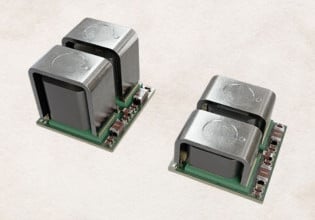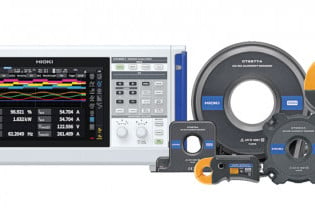Researchers Pave the Way for Timekeeping Battery-less IoT Devices
A new circuit design introduces the electronics community to a future of batteryless device technology.
Researchers from two universities in the Netherlands, Northwestern University and Delft University of Technology (TU Delft) are leading the way in bringing time-keeping battery-free industrial internet of things (IoT) devices to the consumer market. The researchers created a circuit that is able to keep track of time for devices even during the event of a power outage.
Why is Time Keeping Important?
When something like a power outage occurs and a computer cuts out, the system can take a substantial amount of time to reboot, which can be quite frustrating. The computer needs to rejig its memory to see where you last left off. Even more frustrating and anxiety-inducing is that any unsaved work or important projects can be lost even when the computer does come back to life. Timekeeping is quite important for many devices including computers as it helps run applications, system services, and security features.
Hester and Pawelczak’s System
For IoT devices, Hester and Pawelczak’s novel circuit ensures that timekeeping is no longer an issue. In a news release from last month, research co-lead Josiah Hester from Northwestern said, “We built a custom system that reliably keeps track of time despite numerous power failures and interruptions for any IoT device.”
This means that a small IoT device like a security camera, smartwatch, fitness tracker, or medical sensor can restart quickly without you even noticing there was a power shortage in the first place. The circuit designed by the researchers enables a device to save “a stitch in time” by sewing together the seams to restore the fabric of a system as it was when it was being used.
Botoks custom software and hardware platforms for batteryless devices. Image used courtesy of Northwestern University
Hester, along with research co-lead Przemyslaw Pawelczak from TU Delft produced two papers, one that outlines the hardware of their time-keeping circuit and another that focuses on how it can be used to convert battery-powered devices into batteryless devices. Both papers were presented at the Architectural Support for Programming Languages and Operating Systems (ASPLOS) 2020 annual meeting.
Helping the Environment
Although Hester and Pawelcak understand that completely removing batteries as a current source of energy will have consequences, they are outweighed by the immense benefit to the environment. Currently, it is posited that around 3 billion batteries enter landfill sites every year. Some batteries like lithium, contain both lithium and cobalt which are toxic to the environment, with lithium being flammable and quite hazardous. leaching of such materials into the environment can disturb the balance of ecosystems and also harm the individuals mining the materials.
“If we hope to have a vision of computing that is sustainable, then we have to rethink how we design these systems,” said Hester in the same news release. Developing a system like their conscientious circuit design may be an integral step to encouraging steps towards further development of more sustainable methods of sourcing, storing and utilizing energy.






